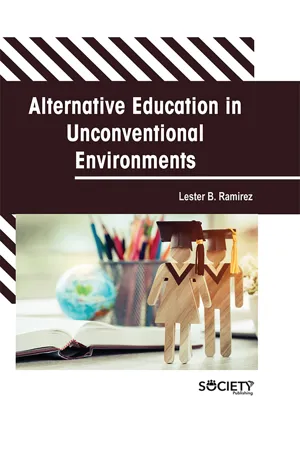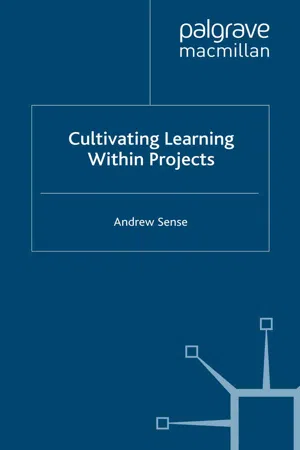Psychology
Willingham's Learning Theory
Willingham's learning theory emphasizes the importance of prior knowledge in learning. It suggests that new information is best understood and retained when it is connected to existing knowledge. The theory also highlights the role of practice and repetition in strengthening memory and learning.
Written by Perlego with AI-assistance
Related key terms
1 of 5
5 Key excerpts on "Willingham's Learning Theory"
- eBook - ePub
- Jim Gould, Jodi Roffey-Barentsen(Authors)
- 2018(Publication Date)
- SAGE Publications Ltd(Publisher)
Behaviourist theory requires that learning is measurable and therefore evidenced in an observable form. Teaching is planned and assessed in a systematic manner, based around learning objectives. Teaching strategies tend to be teacher-led and classroom management techniques are based on rules, rewards and sanctions.- Cognitive theory regards learning as a search for meaning and understanding. It favours active forms of learning such as problem-solving and discovery-based approaches. Classroom management techniques revolve around a view of the whole person rather than just the behaviours they exhibit.
- Information processing theory compares the brain to a computer and identifies attention, perception and memory as the main procedures involved in processing information. Teaching is carried out in a manner designed to increase the efficiency of these processes.
- Neuro-cognitive approaches use brain imaging techniques to examine how various mental processes are implemented in the brain. In common with information processing theory, processes such as attention, perception and memory are explored but the physiology of the brain and how it can best be looked after, increasing its efficiency, is also a point of focus.
- Social learning theory speculates that we learn from one another through the processes of observation, imitation and modelling. Learning from those more knowledgeable than ourselves through the technique of scaffolding allows us to achieve what we could not through our own efforts alone.
- Humanism places high importance on the uniqueness of the individual and their drive to reach their full potential. Learning is a response to individual needs and is planned and carried out through a process of facilitation.
- Andragogy
- Lester B. Ramirez(Author)
- 2023(Publication Date)
- Society Publishing(Publisher)
LEARNING THEORIES CHAPTER2 CONTENTS 2.1. Introduction ...................................................................................... 32 2.2. Perspectives ...................................................................................... 33 2.3. Theories ............................................................................................ 35 2.4. Research ........................................................................................... 41 2.5. Memory ............................................................................................ 46 2.6. Nervous System ................................................................................ 49 2.7. Drugs................................................................................................ 55 2.8. Development .................................................................................... 57 2.9. Motivation ........................................................................................ 60 2.10. Brain Activity .................................................................................. 62 Alternative Education in Unconventional Environments 32 2.1. INTRODUCTION Learning entails obtaining and changing information, abilities, tactics, attitudes, and behaviors. People acquire a variety of cognitive, verbal, physical, and social abilities. We need to understand the process of human learning, the variables that affect it, and the ways in which learning theories are applied in diverse educational settings (Calder & McCollum, 2013). The de-emphasis on learning is not meant to diminish its significance because animal research has taught us a lot about how to learn. But because human learning is more sophisticated, quick, and frequently incorporates language, it differs fundamentally from animal learning. Learning is first defined and investigated in the contexts in which it takes place.- eBook - ePub
Integrating Teaching, Learning, and Action Research
Enhancing Instruction in the K-12 Classroom
- Ernest T. Stringer, Lois McFadyen Christensen, Shelia C. Baldwin(Authors)
- 2009(Publication Date)
- SAGE Publications, Inc(Publisher)
2Learning Theory
T he purpose of this chapter is to provide greater understanding of the complexity of student learning processes. It signals the wide range of factors teachers must take into account in their classroom teaching. Insights are drawn from the following theoretical perspectives:- Cognitive and developmental theories that focus on
- Ways information is processed, learned, and transferred
- Learner adaptation
- Stages of development of knowledge dispositions (Piaget)
- Social learning theory (Vygotsky)
- Inquiry, problem solving, and discovery that change learner cognitive structures (Bruner)
- Multiple intelligences through which humans process information (Gardner)
- Brain theory and its focus on biological propensity (Caine and Caine)
- Social learning theory that focuses on social imitation and observation (Bandura)
- Inquiry learning that focuses on learning through problem solving within the social world of the learner (Dewey)
- Postmodern perspectives that highlight the need to take into account the systems of meaning—social, cultural, and political—through which learners make sense of their environment
- Critical theory that shows how
- Knowledge and understanding based on a teacher’s history of experience is imposed on students in disempowering ways
- Teachers need to take advantage of the cultural capital of the learner (Freire)
- Democracy and social justice are learned in classrooms
Each of these theoretical perspectives suggests the need for teachers to approach the act of teaching as a process of inquiry to enhance their professional lives and provide greater satisfaction for their students.MS . MC KINLEY ’S SOCIAL STUDIES LESSONMs. McKinley walked down the hill from the middle school to the assisted living care center to set up e-mail accounts so that her sixth graders could communicate with the elders there (LOOK). The sixth graders created Web pages about themselves so the residents could get to know them. They included interview questions about their histories in terms of family and so on. The residents e-mailed back and included photographs of family members and themselves, some of the benchmarks in their lives, significant historical occurrences, favorite music, service interests, military service if pertinent, and other areas of relevant information (ACT). Prior to the interviews, the sixth-grade students brainstormed interview questions; some questions were grand tour questions and others were mini-tour questions (THINK) (Spradley, 1980). - eBook - PDF
- A. Sense(Author)
- 2007(Publication Date)
- Palgrave Macmillan(Publisher)
Such a focus initially draws our attention to cognitive learning theory, which has emerged as the predominantly recognized and generally accepted individual learning theory. This has primarily come about through the publication of the seminal works of some notable authors in the learning field, for example 26 Cultivating Learning Within Projects Argyris and Schön (1978), Kolb (1984) and Senge (1990). The following discussion on cognitive learning theory will, therefore, focus only on these pre-eminent authors in the field, as their collective work provides a sufficient analysis of the theory for the purposes of this book. The cognitive theories presented include Kolb’s (1984) experiential learning theory, Argyris and Schön’s (1978) theory-of-action perspective, and Senge’s (1990) five disciplines perspective. In forecasting some of the discussion that follows, cognitive learning may be viewed as an individual cerebral or psychological process, intimately engaged in reciprocal determination with the context and its sociological aspects. Therein, individuals try to make sense of their experiences by running them past their cognitive maps or mental models, possibly reforming their models and deciding on their behavioural actions to be taken, in accordance with the conditions of their context. Underpinning psychological or cognitive theories on learning is an assumption that conflict (caused by error or different information) is an essential condition for learning and acts as a motor driving the learning process (Dodgson, 1993). That is, variation occurs in experiences, which then prompts individuals into reflection on the events and adjustments to their perceptions and actions. - eBook - ePub
School Didactics And Learning
A School Didactic Model Framing An Analysis Of Pedagogical Implications Of learning theory
- Michael Uljens(Author)
- 2004(Publication Date)
- Psychology Press(Publisher)
Another early cognitive theory of learning was Ausubel’s (1963) model of meaningful verbal learning. It relies heavily on the schema-concept. The cognitive structure in Ausubel’s theory consisted as a model organizing perceived information; in learning, information was subsumed in an existing cognitive structure. Another aspect stressed in Ausubel’s theory was that of conceiving learning as a result of the individual facing information that differed, or was distinguishable from, existing individual cognitive structures. Ausubel stresses the relation between the logical structure of information and the individual’s psychological organization of the world. For Ausubel, as for Bruner, the common concepts in language form the fundamental basis required for successful learning. Language and concepts are therefore required in building the cognitive bridge between psychological and logical reality (Ausubel, Novak, & Hanesian, 1978).A third earlier theory is Wittrock’s (1974) theory of generative learning. The notions of rule and inference were central to the generative model. Learning was conceived of as generating (constructing) connections between pieces of information in the long-term memory by trying to discover underlying relationships and rules pertaining to the information. Thus learning occurs through suggesting connections between potential or possible relationships and then testing these assumptions.Most approaches to learning view the concept of de-contextualization or generalization as central to their theory; knowledge that is originally acquired in a specific context must become more abstract so that it may be used in other situations. Today, when learning is largely understood as contextual in nature, it is important to note that the demand concerning the transfer of competence from one context to another has not disappeared (Singley & Anderson, 1989). The question of how competence, skills and knowledge are de-contextualized in order to be more generally applied is still an urgent one for all theories of learning, but is not well understood. Even though the process of de-contextualization or generalization of knowledge is taken to refer to extending its range of application to other situations, it is not always specified what this generalization process contains or how it is realized. On the other hand, one might expect contextual theories on cognition to be better suited than others for dealing with the relation between context and competence.How are the learning processes then defined? Previously we looked at Sternberg’s (1987) theory, in which metacognitive activities are stressed. In Norman’s (1982) and Rumelhart and Norman’s (1987) schema-based theory these metacognitive activities are combined with the idea of longterm memory. They suggest three kinds of learning:
Index pages curate the most relevant extracts from our library of academic textbooks. They’ve been created using an in-house natural language model (NLM), each adding context and meaning to key research topics.




